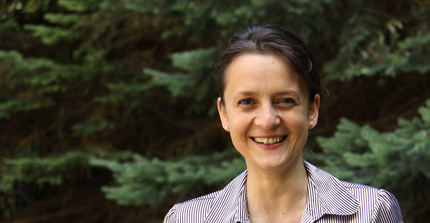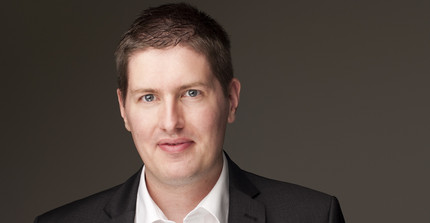Party, Parliamentary and Ministerial Work
First of all, there are essentially two possible career paths that open the door to the occupational field of politics. Each follows its own unqiue admission mechanism: Positions in the background operations of parties, parliaments or ministries can be found directly on the websites of the individual institutions or respective job sites, whereas an occupation in direct political representation, so taking an actual office, usually requires endurance, strategic planning and the sometimes tedious way through the institutions themselves.
The beginning of a political career is usually marked by joining a party. In a multi-party system such as the German democracy, parties are viewed as central points for the forming of political willpower and therefore take on a key function in the process of political decision-making. They develop long-term political programs and recruit and train new generations for political offices. While it is theoretically possible to be elected on all parliamentary levels without belonging to a certain party, it rarely works in practice. Especially the nomination and/or election as a member of the German federal parliament seems to be very difficult, if not impossible, without the financial and organization support that party membership brings.
Parties are usually organized in local, municipal, regional, state and federal associations that shape the respective levels of parliamentary policy. Most party members volunteer in working groups of their respective parties, for example. In order to work for a party full-time, one must be voted into office, which usually requires years of prior, active membership. Most parties also have their own youth training or mentoring programs for future generations.
Parliamentary career ladder
Access to the parliamentary path is easiest on a municipal level, in council or faction positions, as well as mayor’s offices for example. Anyone looking to serve in these must be elected in municipal elections. Membership in community or city councils usually functions on a voluntary basis and only for a small monetary compensation. In smaller municipalities, the mayor’s office is also assumed on a voluntary basis. It is also possible to do parliamentary work on a state level. Members of state parliaments prepare and follow up on monthly assemblies, make decisions about legislative drafts and proposals, present political demands, carry out state elections and elect the state premier, who then appoints state ministers and thus establishes the state government. The exact requirements for taking office on a municipal or state level are regulated by the legal stipulations of the respective states and municipalities and are not federally uniform.
Taking office in one of the institutions of the European Union requires holding office as a federal minister beforehand. Working in federal politics usually also requires establishing a name for oneself on a municipal or state level first, signifying that it is necessary to work one’s way up the parliamentary ladder. This can be quite arduous, but also offers certain benefits. In addition to rich working experience, these also include early networking opportunities and contact with potential voters. Some parties also offer internal training programs that allow participants to hone any abilities relevant to the job, such as rhetorical skills. Under certain circumstances, faster entry into the political system is also possible laterally – as a delegate’s speaker or consultant, for example. This, however, seems to require extensive prior networking, since only those who are visible enough and proposed as candidates are able to forge a career path this way.
Entry into political fields possible beyond political offices
In addition to political offices, a whole array of further tasks regarding the administration and organization of all political institutions (from community councils to the Bundestag) arises in the political apparatus. These, as in almost all public institutions, political organizations, lobby associations, interest groups, etc. offer so-called research-related and/or parliamentary services and/or academically qualified speaker or consultant positions, which can also provide the necessary stepstone for a lateral entry into direct political work under the right conditions. The specific titles for these positions vary (“parliamentary consultant,” “research-related service” or “policy and consulting service”), the concrete tasks and the personal requirements from state to state. They are divided into different thematic groups and serve the scientific elaboration of unbiased information for delegates and employees in the political sphere which is partially accessible to the public. Their tasks include the development of legal drafts and wording, the processing of inquiries and applications and the writing of reports and dossiers.
For these research-related services, jurists are in high demand since a legal perspective is often necessary. However, graduates from other academic backgrounds may also find employment here. Very good knowledge of the political system, current political, economic and social happenings and debates, extensive expertise in one’s own field, as well as the ability to quickly comprehend new topics and questions and present the results concisely are indispensable in these positions.
In addition to research, the political machinery also offers tasks ranging from HR management to accounting, meaning that positions can be found for all types of qualifications and study backgrounds: In an academic field this could be as a speech writer, translator, social media manager or in IT.
Whilst normal administrative positions are generally not bound to one specific party or political direction, working in a faction or for individual members of parliament (who are usually part of a faction after all) usually requires a respective party membership or at least sympathy. Anyone interested in positions in the political system can find these on the homepages of the respective parties or institutions or relevant jobsites (see below).
Click the following link for more information on working in a European institution or an International Organization.



